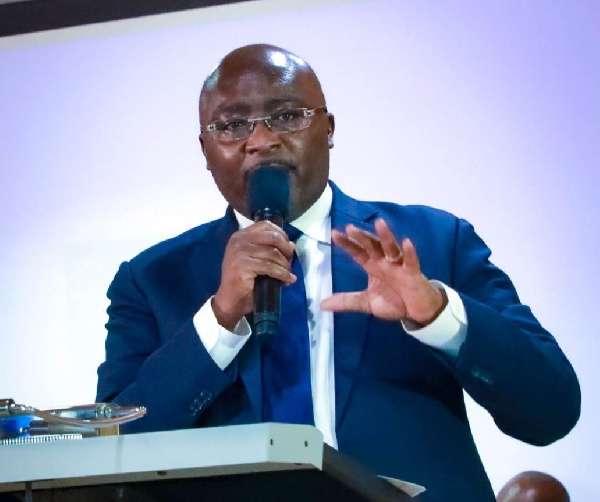Vice President, Dr Mahamudu Bawumia, has disclosed that government is negotiating a new policy regime where gold will be used to buy oil products for the country.
According to him, the move to barter gold for oil represents a major structural change for the country. He indicated that barter of sustainably mined gold for oil is one of the most important economic policy changes in Ghana since independence.
Dr Bawumia noted that once implemented as envisioned, it will fundamentally change government’s balance of payments and significantly reduce the persistent depreciation of Ghana’s currency with its associated increases in fuel, electricity, water, transport, and food prices.
“The barter of gold for oil represents a major structural change. My thanks to the Ministers for Lands and Natural Resources, Energy, and Finance, Precious Minerals Marketing Company, The Ghana Chamber of Mines and the Governor of the Bank of Ghana for their supportive work on this new policy.”
Dr Mahamudu Bawumia
Dr Bawumia revealed that the demand for foreign exchange by oil importers in the face of dwindling foreign exchange reserves results in the depreciation of the cedi and increases in the cost of living with higher prices for fuel, transportation, utilities, etc.
The Vice President indicated that this is because the exchange rate will no longer directly enter the “formula for the determination of fuel or utility prices since all the domestic sellers” of fuel will no longer need foreign exchange to import oil products.
“We expect this new framework to be fully operational by the end of the first quarter of 2023.”
Dr Mahamudu Bawumia
Ghana has experienced recent hikes in petroleum products including diesel and petrol.
Soaring prices of fuel in the country
It will be recalled that finance minister, Ken Ofori-Atta, in his 2023 budget presentation to parliament indicated that the demand for foreign exchange to support the country’s unbridled demand for imports undermines and weakens the value of the cedi. This contributed to the depreciation of the cedi losing about 53.8 percent of its value since the beginning of the year.
He emphasized that compared to the average 7 percent average annual depreciation of the Cedi between 2017 and 2021, the current year’s depreciation, which is driving the high costs of goods and services for everyone, is clearly an aberration.
Mr Ofori-Atta noted that the increases in fuel prices with diesel currently GHC20.5 and Petrol GHC16.8, has led to increases in prices of most goods and services.
Prior to this, the Executive Secretary of the Chamber of Petroleum Consumers (COPEC), Duncan Amoah, explained that the rise is due to the increase in taxes on petrol to around 422% within the year. He noted that the National Petroleum Authority (NPA) should not be blamed for the increase in prices; instead, he believes it is due to mismanagement by the government.
Owing to this, Dr Amoah implored the government to minimize the increase in petroleum taxes, saying it may lead to the loss of jobs in the petroleum sector.
However, the Public Relations Officer of National Petroleum Authority (NPA), Mohammed Abdul-Kudus, noted that the increment in prices should be blamed on the cedi depreciation and not taxes.
READ ALSO: 70% Of All Revenues From Property Tax Will Go To The District Assemblies- Dr Kumah




















